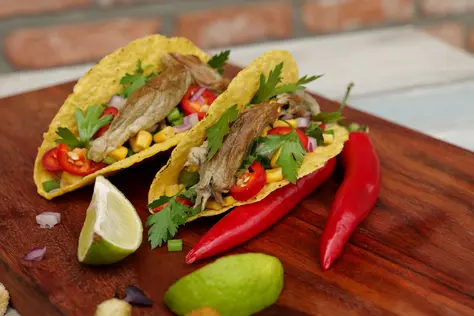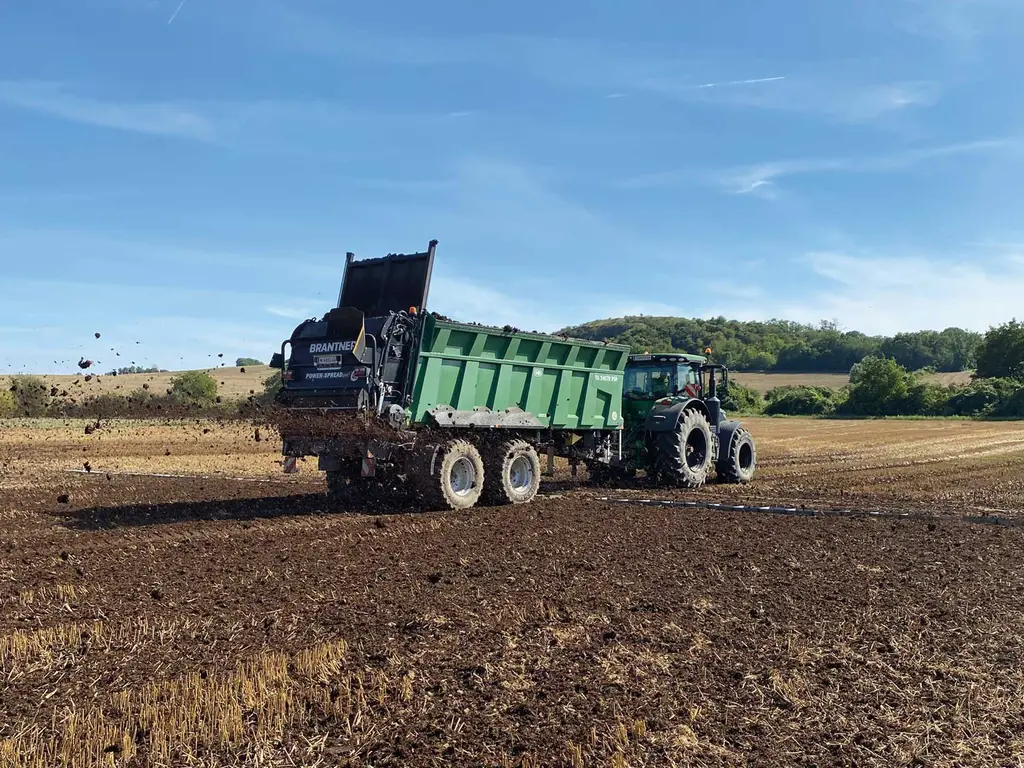AGRIFUTURE Conference and FTA Agricultural Burning Conference conclude successfully
300 participants and 50 speakers; Thai Ministry of Agriculture addressed biomass management and the impact of burning residue; Friends of Thai Agriculture (FTA) hosted burning conference; “Clean Practices and Green Innovations for a Sustainable Agri-Food System”
The third edition of the AGRIFUTURE Conference & Exhibition, organized by the DLG (German Agricultural Society), has concluded successfully at True Digital Park in Bangkok,Thailand. Co-located with the second Friends of Thai Agriculture (FTA) Agricultural Burning Conference, the two-day event welcomed around 300 participants from 20 countries, including government officials, embassy representatives, agricultural attachés, researchers, and stakeholders from across Southeast Asia. Together, they explored science-based and farmer-centered solutions presented by 50 experts for building a cleaner, more resilient agri-food system in the region.
Held under the theme “Clean Practices and Green Innovations for a Sustainable Agri-Food System,” AGRIFUTURE 2025 serves as a regional platform for knowledge exchange, innovation showcases, and policy dialogue.
„Agricultural residue management is a pressing issue in Thailand and ASEAN region. Approximately 40 percent of biomass waste in Thailand remains unutilized. We need to work together to find the green innovations needed to drive meaningful change,” said Katharina Staske, Managing Director of DLG Asia Pacific, in her opening remarks.
Staske highlighted that innovations presented by Netafim, AxisTech, and Kubota at the event, offered solutions for emission reduction, Irrigation 4.0, and climate-smart agriculture.
“3R model” as a guiding framework for sustainable biomass management
The Permanent Secretary of the Thai Ministry of Agriculture and Cooperatives (MOAC) introduced the “3R” model as a guiding framework for sustainable biomass management: reducing emissions through eco-friendly standards, replacing traditional burning with higher-value and less residue crops, and recycling residues into new products. He presented mechanization as a key tool to transform waste into resources that enhance soil fertility and create profitable value chains.
The FTA Agricultural Burning Conference, now in its second year, has evolved from an informal network of agricultural counsellors into a dynamic, multi-stakeholder initiative supported by DLG, GIZ Thailand, FAO, and the German-Thai Agricultural Cooperation Project (GETHAC). The platform focuses on transboundary haze, crop residue burning, and sustainable post-harvest biomass utilization. This year’s gathering was a direct response to the call made by experts and delegates in 2024 to sustain momentum and continue shaping practical, cross-sectoral solutions.
Breakout sessions at AGRIFUTURE 2025 addressed innovation and policy from multiple angles. One session focused on fire management strategies and the importance of involving local communities to shift away from traditional burning practices. Another explored biobased technologies, that convert agricultural residues into sustainable materials. The GETHAC Project introduced an initiative to create construction materials from corn residues and paper waste, demonstrating how pollution can be transformed into opportunity.
International speakers from Denmark and the Netherlands to Brazil
Regional perspectives added depth to the discussions. Dr. Gijs Theunissen, Agricultural Counsellor at the Embassy of the Netherlands, and Ms. Ana Carolina Lamy, Agricultural Attaché at the Embassy of Brazil, highlighted the public health crisis caused by seasonal agricultural burning in Thailand. For many residents, the burning season means leaving affected areas such as Bangkok or Chiang Mai, while farmers remain exposed. Mr. Henning Hoy Nygaard, Regional Minister Counsellor at the Embassy of Denmark, presented Thailand’s biomass potential, which exceeds 100 million tonnes annually, and stressed the importance of treating biomass as a resource rather than waste.
Complementing the policy and technical dialogue was the AGRIFUTURE Innovation Pitch, a non-commercial segment designed to bridge the gap between technology providers and real-world agri-food system challenges. The pitch series showcased applied technologies and scalable models in AI-driven data transformation, energy-efficient cold storage for high-value crops, and Irrigation 4.0. It served as a curated space for innovation communication, connecting stakeholders across public, private, and research sectors.
A major highlight of the event was the AgriSpark Hackathon Finals, powered by the GETHAC Project. University teams from across Thailand competed on sustainable agriculture challenges, culminating in two pitching rounds and an award ceremony. Mr. Krongsak Songraksa, Deputy Director-General of the Department of Agricultural Extension, praised the ingenuity of the teams, noting that their solutions reflected a seamless integration of farmers’ wisdom with scientific knowledge.
The two-day program concluded with field visits to Kubota Farm and the Hydro-Informatics Institute of Thailand, offering delegates practical exposure to precision farming, digital tools, and water-smart technologies. AGRIFUTURE 2025 converged on a common message: sustainable agriculture requires shared responsibility. While legislation and enforcement are critical, they must be matched by practical support for farmers. Collaboration among governments, international organizations, research institutions, and the private sector is key to ensuring that cleaner practices are adopted without compromising livelihoods.
The momentum continues with AGRITECHNICA ASIA 2026 taking place from 20–22 May 2026 at BITEC, Bangkok, under the guiding theme “Farm. Farmer. Future.” Recognized as Asia’s premier trade fair for crop production and smart farming, AGRITECHNICA ASIA showcases the latest innovations in agricultural machinery, precision farming, and sustainable technology solutions tailored to the region’s needs. The 2026 edition will once again be co-located with HortEx, Asia’s leading trade fair for horticultural and floricultural production and processing technology—creating a comprehensive platform for innovation, trade, and collaboration across crop and horticulture value chains.
About DLG Markets Asia Pacific
Founded in 2021 to meet the needs of the farming community in the Asian region, DLG Markets Asia Pacific serves as a strategic platform for agricultural development and innovation. The subsidiary organizes exhibitions and events across the region, including the successful Agritechnica Asia exhibition in both Thailand and Vietnam, as well as the Agrifuture Conference.
DLG Asia Pacific maintains close ties with agricultural ministries in several countries, particularly Vietnam, Thailand and Philippines, which actively support these events. This strong regional engagement ensures that the formats are aligned with local needs while connecting them to global agricultural trends and technologies.
Media contact:
Malene Conlong
Tel: +49 6924788237
Email: M.conlong@dlg.org
About DLG
With more than 31,000 members, DLG is a politically independent and non-profit organisation. DLG draws on an international network of some 3,000 food and agricultural experts. DLG operates with subsidiaries in 10 countries and also organizes over 30 regional agricultural and livestock exhibitions worldwide. DLG’s leading international exhibitions, EuroTier for livestock farming and Agritechnica for agricultural machinery, which are held every two years in Hanover, Germany, provide international impetus for the local trade fairs. Headquartered in Frankfurt, Germany, DLG conducts practical trials and tests to keep its members informed of the latest developments. DLG’s sites include DLG's International Crop Production Centre, a 600-hectare test site in Bernburg-Strenzfeld, Germany and the DLG Test Centre, Europe's largest agricultural machinery test centre for Technology and Farm Inputs, located in Gross-Umstadt, Germany. DLG bridges the gap between theory and practice, as evidenced by more than 40 working groups of farmers, academics, agricultural equipment companies and organisations that continually compare advances in knowledge in specific areas such as irrigation and precision farming.
www.dlg.org










